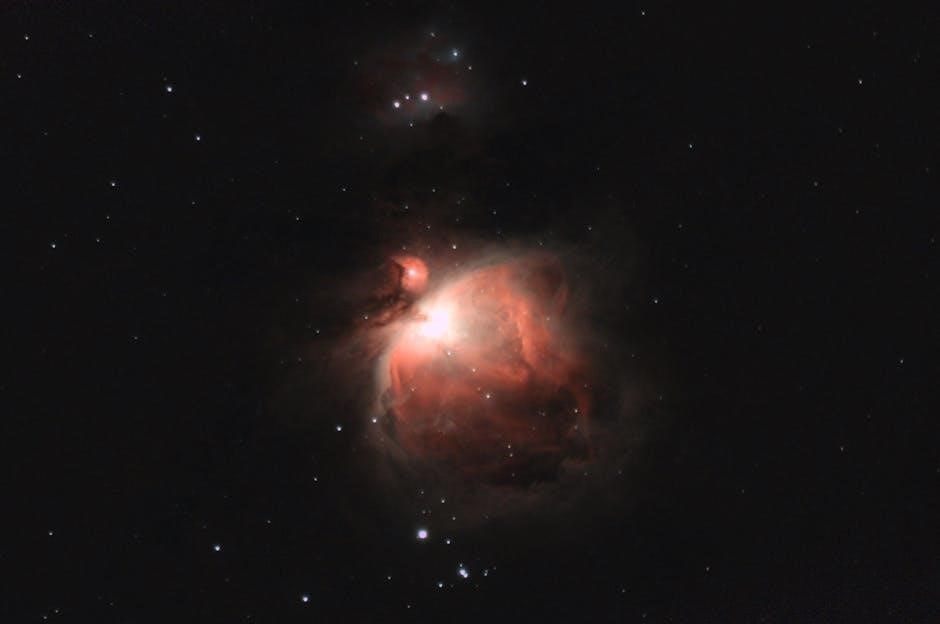Night is a haunting memoir by Elie Wiesel‚ recounting his harrowing Holocaust experiences. The PDF of Night by Elie Wiesel is widely available for educational purposes‚ offering a vivid account of survival and loss. This text remains a crucial resource for understanding one of history’s darkest periods.
Background of the Book
Night‚ written by Elie Wiesel‚ is a memoir that chronicles his harrowing experiences during the Holocaust. The book recounts Wiesel’s journey as a young boy from his hometown of Sighet‚ Romania‚ to the horrors of Auschwitz and Buchenwald concentration camps during World War II. Originally published in 1955‚ the memoir captures the brutality and emotional turmoil Wiesel endured‚ including the separation from his family and the struggle to maintain faith amidst unimaginable suffering. The narrative is both a personal account and a historical testimony‚ offering a vivid portrayal of life in Nazi concentration camps. Wiesel’s story has become a cornerstone of Holocaust literature‚ providing insight into the human cost of genocide and the resilience of the human spirit. The PDF of Night by Elie Wiesel is widely accessible‚ ensuring its powerful message reaches readers globally.
Significance of the Memoir
Night holds profound significance as a Holocaust memoir‚ offering a deeply personal and universal account of survival and loss. Elie Wiesel’s narrative provides a window into the atrocities of the Holocaust‚ educating readers about the historical events while evoking empathy and reflection. The memoir is not only a tribute to the victims but also a call for humanity to remember and learn from the past. Its availability in PDF format ensures accessibility for educational purposes‚ making it a vital resource for students and scholars. Wiesel’s work has become a cornerstone of Holocaust literature‚ emphasizing the importance of remembrance and the fight against prejudice and injustice. The memoir’s impact lies in its ability to bridge the past with the present‚ fostering a deeper understanding of human resilience and the consequences of hatred.

Themes in “Night”
Night explores themes of faith‚ hope‚ and the struggle between humanity and inhumanity amidst unimaginable suffering. The memoir delves into the psychological and emotional toll of the Holocaust on individuals and communities.
Faith and Hope in the Holocaust

The Holocaust profoundly tested the faith and hope of its victims‚ as depicted in Night. Elie Wiesel’s memoir illustrates how the horrors of the concentration camps challenged religious beliefs and the struggle to maintain humanity. Many prisoners‚ including Elie‚ grappled with their faith in a benevolent God amid unimaginable suffering. The PDF of Night by Elie Wiesel highlights the emotional and spiritual turmoil‚ as individuals clung to hope despite overwhelming despair. The narrative explores the erosion of faith and the fleeting nature of hope in the face of atrocities. Yet‚ it also underscores the resilience of the human spirit‚ as some found strength in their beliefs or in the bonds of love and solidarity. This duality of faith and despair remains a central theme‚ offering profound insights into the human condition during one of history’s darkest periods.
Humanity and Inhumanity in Concentration Camps
The PDF of Night by Elie Wiesel vividly portrays the stark contrast between humanity and inhumanity within concentration camps. Elie’s eyewitness account details the brutal treatment of prisoners by Nazi guards‚ illustrating the depths of human cruelty. Yet‚ amidst such horrors‚ moments of humanity endured‚ as prisoners shared meager resources or offered emotional support. The memoir highlights how the camps became laboratories for both inhumanity and resilience‚ where the dehumanizing conditions tested the limits of human endurance. Wiesel’s narrative underscores the coexistence of these opposing forces‚ revealing the complexity of human behavior under extreme duress. This interplay serves as a poignant reminder of the fragility and strength of the human spirit in the face of unprecedented evil.
Historical Context of the Holocaust
The Holocaust’s atrocities‚ including Auschwitz and Buchenwald‚ are documented in Night by Elie Wiesel‚ providing a personal account of Nazi persecution and mass extermination during WWII.
Auschwitz and Buchenwald Concentration Camps
Auschwitz and Buchenwald were two of the most notorious Nazi concentration camps during the Holocaust. Auschwitz‚ often referred to as the “death factory‚” was the site of mass exterminations‚ with gas chambers and crematoria operating relentlessly. Buchenwald‚ known for its brutal forced labor and harsh conditions‚ witnessed countless deaths due to starvation‚ disease‚ and executions. Elie Wiesel’s memoir Night vividly recounts his experiences in both camps‚ detailing the horrors he and his father endured. The PDF of Night by Elie Wiesel provides a harrowing firsthand account of life in these camps‚ shedding light on the atrocities committed during WWII.
The Impact of the Holocaust on Jewish Communities
The Holocaust had a profound and devastating impact on Jewish communities worldwide. It led to the destruction of entire families‚ the obliteration of cultural heritage‚ and a profound sense of loss and trauma. The survivors‚ like Elie Wiesel‚ carried the scars of this genocide‚ which shaped their identities and worldviews. The PDF of Night by Elie Wiesel serves as a poignant reminder of these atrocities‚ offering a personal perspective on the collective suffering. The Holocaust also led to a diaspora of Jewish populations‚ altering the demographic and cultural landscapes of many countries. The memoir underscores the resilience of the Jewish people and their struggle to rebuild lives after unimaginable horrors.

Literary Style and Structure
Night by Elie Wiesel is written in a straightforward‚ haunting prose style that mirrors the stark reality of the Holocaust. The narrative structure is episodic‚ recounting specific events during Wiesel’s confinement‚ creating a powerful emotional impact through its simplicity and clarity‚ which enhances the memoir’s authenticity and depth.
Autobiographical Elements in “Night”

Night is deeply rooted in Elie Wiesel’s personal experiences during the Holocaust‚ blending vivid memories with emotional reflections. The memoir chronicles Wiesel’s journey from his hometown of Sighet to Auschwitz and Buchenwald‚ detailing the loss of his family and his struggle to maintain faith. The narrative voice is both intimate and universal‚ offering a firsthand account of life in concentration camps. Wiesel’s recollections of specific events‚ such as the separation from his mother and sister and the harsh conditions of forced labor‚ create a poignant and authentic portrayal of his ordeal. These autobiographical elements make Night a powerful and enduring testimony of the Holocaust‚ providing readers with a raw and unfiltered glimpse into one of history’s darkest chapters.

Symbolism and Imagery in the Narrative
Night by Elie Wiesel is rich in symbolism and imagery that enhance the emotional depth of the Holocaust narrative. The recurring motif of darkness symbolizes the moral and spiritual void of the Holocaust‚ while the crematoria represent industrialized death and dehumanization. Wiesel’s description of the camp’s harsh environment‚ with its barbed wire and endless smoke‚ creates a vivid image of despair. The use of fire as a symbol of destruction contrasts with its traditional role in Jewish rituals‚ signifying a loss of faith and tradition. The narrative’s focus on the loss of innocence‚ particularly through the young boy’s perspective‚ further underscores the tragedy. These elements‚ accessible in the PDF of Night by Elie Wiesel‚ provide a powerful framework for understanding the Holocaust’s impact on individuals and humanity as a whole.
Elie Wiesel’s Personal Journey
Elie Wiesel’s personal journey reflects his harrowing Holocaust experiences‚ deportation to Auschwitz and Buchenwald‚ and his post-liberation advocacy for peace and human rights. His memoir Night‚ available as a PDF‚ captures his transformation from a teenage survivor to a Nobel Peace Prize laureate‚ dedicating his life to combating intolerance and injustice.
From Sighet to Auschwitz: A Teenager’s Experience
Elie Wiesel’s journey began in Sighet‚ Romania‚ where he was raised in a devout Jewish family. In 1944‚ at just 15‚ he was deported to Auschwitz with his father‚ enduring unimaginable horrors. The PDF of Night by Elie Wiesel details his harrowing experiences‚ from the separation of his family to the brutal conditions in concentration camps. Wiesel’s narrative captures the loss of innocence and faith as he witnessed atrocities‚ including the deaths of his mother and younger sister. His bond with his father became his only solace‚ yet even that was tested by the inhumanity of the camps. This section of the memoir vividly portrays the psychological and emotional toll of the Holocaust on a young boy‚ transforming his life forever. The PDF version of Night offers a poignant and accessible way to explore this deeply personal and historical account.
Wiesel’s Post-Holocaust Advocacy
Elie Wiesel emerged from the Holocaust as a powerful voice for human rights and peace. His memoir Night became a cornerstone of Holocaust literature‚ urging the world to remember the atrocities. Available as a PDF‚ the book has reached millions‚ inspiring reflection and action. Wiesel dedicated his life to advocating against injustice‚ founding the Elie Wiesel Foundation for Humanity. He traveled globally‚ speaking out against atrocities and promoting tolerance. His work earned him the Nobel Peace Prize in 1986. Through his writings and activism‚ Wiesel ensured the Holocaust’s lessons were not forgotten‚ becoming a beacon of hope and humanity in the face of oppression. His legacy continues to inspire‚ reminding future generations of the importance of standing against hatred and fighting for justice.

Resources for Reading “Night”
Night by Elie Wiesel is widely available as a PDF‚ offering easy access to this powerful memoir. The full text can be downloaded for free‚ making it a popular choice for educational purposes.
PDF Availability and Download Options
The PDF of Night by Elie Wiesel is readily available online‚ offering convenient access to this powerful Holocaust memoir. The full text can be downloaded for free from various educational platforms‚ including Docsity and other academic repositories. The PDF file size is approximately 1‚616 KB‚ ensuring easy storage and readability on digital devices. Additionally‚ the memoir is accompanied by study guides‚ comprehension questions‚ and critical interpretations‚ which are invaluable for deeper analysis. Readers can also access the PDF through platforms like Archive.org or educational websites‚ making it a widely accessible resource for students and scholars. This digital format allows for seamless reading on smartphones‚ tablets‚ and computers‚ ensuring that Wiesel’s poignant narrative reaches a broad audience.
Study Guides and Critical Interpretations
Various study guides and critical interpretations accompany the PDF of Night by Elie Wiesel‚ providing deeper insights into the memoir’s themes and historical context. These resources include comprehension questions‚ analysis of key events‚ and explorations of Wiesel’s literary style. Scholars and educators often use these guides to facilitate discussions on themes such as faith‚ hope‚ and humanity. Critical interpretations‚ such as those by Harold Bloom‚ offer advanced analysis of the memoir’s significance and its place in Holocaust literature. These materials are available in PDF format‚ making them easily accessible for students and researchers. They serve as invaluable tools for understanding the emotional and historical depth of Wiesel’s narrative‚ enhancing the reader’s engagement with the text. These resources are often included alongside the memoir’s PDF download‚ ensuring a comprehensive learning experience;
Night by Elie Wiesel remains a profound and deeply moving account of the Holocaust‚ offering readers a glimpse into one of history’s darkest periods. The availability of the PDF of Night by Elie Wiesel ensures that this vital memoir is accessible to a wide audience‚ fostering education and reflection. Wiesel’s narrative not only chronicles personal suffering but also underscores the universal themes of hope‚ faith‚ and resilience. Through his writing‚ Wiesel became a voice for Holocaust survivors‚ advocating for peace and human rights. The memoir’s enduring relevance highlights the importance of remembering the past to prevent future atrocities. As a testament to the human spirit‚ Night continues to inspire readers worldwide‚ serving as a powerful reminder of the need for tolerance and understanding.
